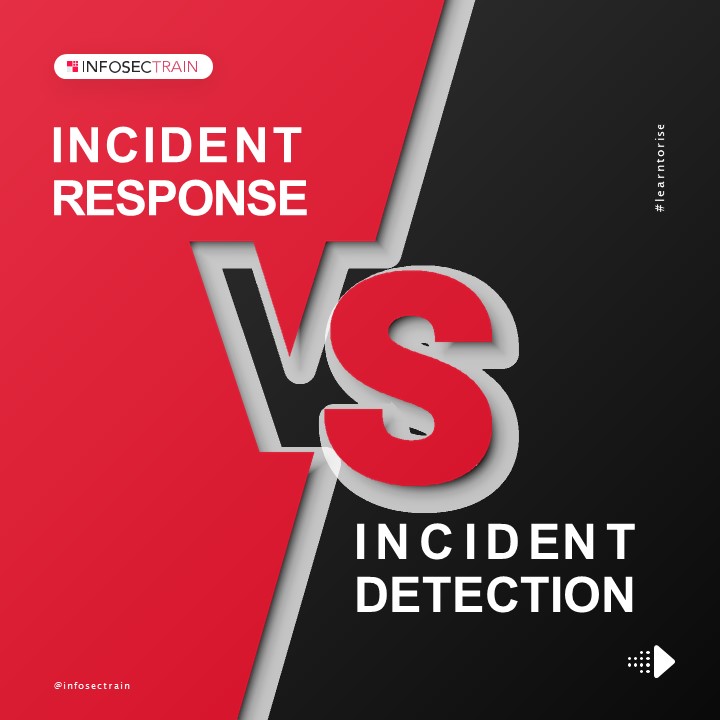Incident Response vs Incident Detection - PowerPoint PPT Presentation
Incident Response vs Incident Detection
Cyber Incident Responder, Computer Network Defense Incident Responder, and Incident Response Engineer are just a few of the positions available in the incident response sector. – PowerPoint PPT presentation
Title: Incident Response vs Incident Detection
1
INCIDENT RESPONSE
learntorise
I N C I D E N T DETECTION
2
DEFINITION
learntorise
INCIDENT RESPONSE refers to the process of
effectively handling and managing
security incidents that have been detected or
reported.
INCIDENT DETECTION involves the proactive
monitoring identification of potential
security threats or anomalies within an
organization's systems or network.
3
FOCUS
learntorise
INCIDENT RESPONSE focuses on responding to and
mitigating the impact of a confirmed security
incident.
INCIDENT DETECTION focuses on identifying
indicators of compro- mise (IOCs),
suspicious activities, or patterns that may
indicate a security incident.
4
TIMING
learntorise
INCIDENT RESPONSE occurs after an incident has
been identified or reported, and it involves
immediate action to contain, investigate,
eradicate, and recover from the incident.
INCIDENT DETECTION occurs before or during a
security incident, with the aim of
identifying threats in their early stages to
enable a timely response.
5
ACTIVITIES
learntorise
INCIDENT RESPONSE activities include analyzing
the incident, gathering evidence, and
implementing measures to prevent future
incidents.
- INCIDENT DETECTION
- activities include monitoring network
- traffic, analyzing logs, using intrusion
detection - systems (IDS), security information and event
management (SIEM) - tools, to identify potential threats.
6
GOAL
learntorise
INCIDENT RESPONSE The primary goal of incident
response is to minimize the damage caused by
the incident, restore normal operations, and
prevent similar incidents from recurring.
INCIDENT DETECTION The main goal of detection is
to identify and raise alerts on potential
security incidents or breaches, allowing for a
swift response minimizing the dwell time of
threats.
PowerShow.com is a leading presentation sharing website. It has millions of presentations already uploaded and available with 1,000s more being uploaded by its users every day. Whatever your area of interest, here you’ll be able to find and view presentations you’ll love and possibly download. And, best of all, it is completely free and easy to use.
You might even have a presentation you’d like to share with others. If so, just upload it to PowerShow.com. We’ll convert it to an HTML5 slideshow that includes all the media types you’ve already added: audio, video, music, pictures, animations and transition effects. Then you can share it with your target audience as well as PowerShow.com’s millions of monthly visitors. And, again, it’s all free.
About the Developers
PowerShow.com is brought to you by CrystalGraphics, the award-winning developer and market-leading publisher of rich-media enhancement products for presentations. Our product offerings include millions of PowerPoint templates, diagrams, animated 3D characters and more.































